News
Stay updated with the latest from Volunteering New Zealand


Leadership
VNZ Events
Influencing for Volunteer Engagement
Volunteer management is not a solo project – it needs a whole organisation to engage volunteers, Rob Jackson said at a recent webinar on influencing. Volunteer managers need to be proactive about involving others and realising the value of volunteers.
Volunteer management is not a solo project – it needs a whole organisation to engage volunteers, Rob Jackson said at a recent webinar on influencing.
Volunteer managers need to be proactive about involving others and realising the value of volunteers.
The webinar, From the Top Down – Influencing, on 18 February, was attended by people from a wide variety of organisations.
What Volunteers Bring
Rob posed the question: Why involve volunteers at all?
Participants gave many responses to what volunteers contribute and why organisations value them.
- Passion, empathy, compassion
- Lived experience that enriches services and relationships.
- Commitment, motivation, community connection beyond what paid staff may offer.
- Diverse perspectives, fresh thinking, challenging the status quo.
- Shared purpose and optimism.
- Skills, knowledge, and meaningful contribution to organisational mission.
Impact Statements
To influence others – stakeholders inside and outside your organisation – Rob noted the importance of setting goals. “What change do you want to see and what will things be like if this change happens?”
One participant had previously posed this question to her wider team and came up with a volunteer impact statement, vis: “volunteers with their freely given time, empathy, and experience enrich our culture, strengthen our connections, and enhance the support we provide ...”
Organisational Reflections
If hypothetically given unlimited money, participants would:
- Invest directly in volunteers, reimburse expenses, develop capability and strengthen community connection.
- Support volunteers more effectively and intentionally.
Participants came away with ideas to map stakeholders and how to influence them, as well as setting goals for volunteer engagement.
See more from Rob Jackson: https://linktr.ee/robjconsulting
Book now for Rob’s next session on 4 March: Measuring Volunteering
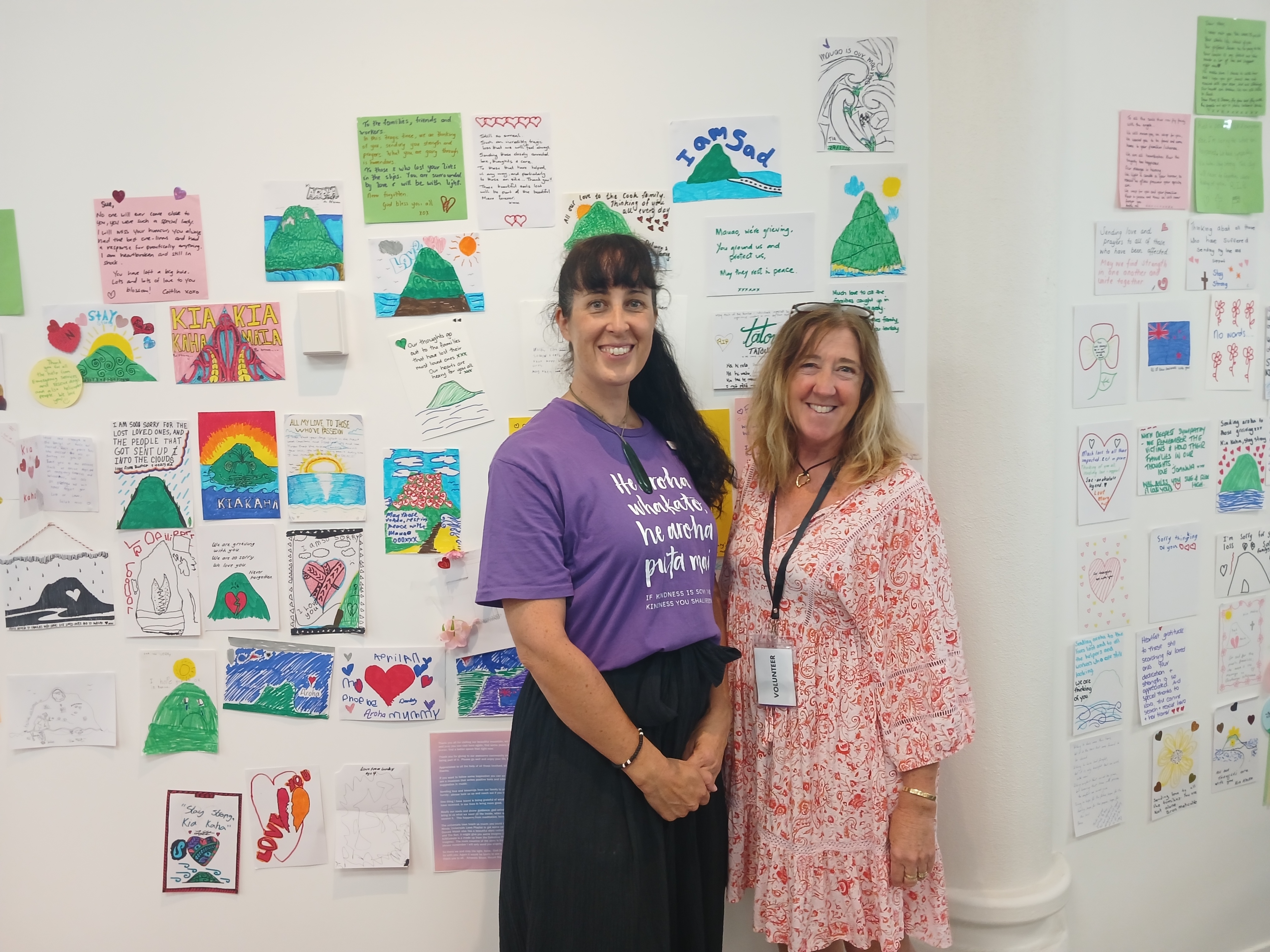
Community
Leadership
Volunteers
Emergency volunteering in Bay of Plenty
Volunteers in the Bay of Plenty provided great support in the recovery from the Mauao (Mt Maunganui) and Welcome Bay storm events of late January. A team of volunteers organised by SociaLink Volunteering Services supported the He Maimai Aroha Community Care Centre.
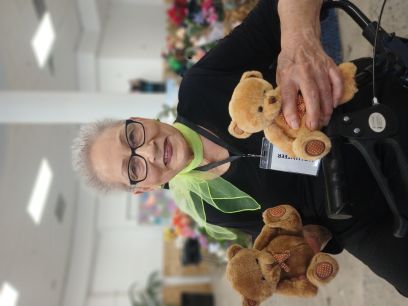
Volunteers in the Bay of Plenty provided great support in the recovery from the Mauao (Mt Maunganui) and Welcome Bay storm events of late January.
A team of volunteers organised by SociaLink Volunteering Services supported the He Maimai Aroha Community Care Centre.
Volunteer team well-prepared and welcoming
“We want to say how amazing our emergency volunteer team has been. They welcomed people, cared for the space and created a welcoming environment for people to reflect on our community loss,” says Liz Davies, Chief Executive of SociaLink.
Heather Chander, an emergency volunteer, has had a role welcoming people as they arrive.
“It is very touching that so many have come to reflect, pay their respects, or, through their feelings, create a tribute to those who have been so tragically taken. The outpouring of love has been truly humbling.”
Jo Veale, Chairperson, Mount Business Association says the volunteers were well-prepared to meet the diverse needs of our community members and contributed their time freely and with goodwill.
“Volunteering Services has played a pivotal role in the successful staffing of our community care centre, He Maimai Aroha. Their dedicated efforts have significantly enhanced our ability to provide comprehensive care and support to those in need.”
Volunteer Co-ordination behind the scenes
Volunteering Services provided the volunteer co-ordination to mobilise volunteers at short notice.
Volunteering Services is supporting Tauranga City Council and Western Bay of Plenty District Council with emergency volunteers. The councils in turn partially funded Volunteering Services to establish an emergency volunteering database and Volunteer Management System.
“Our preparedness work has proved invaluable, resulting in solid relationships, agreed ways of working and a volunteer management system that could be activated at short notice.
“The system was tailored to support volunteering in an emergency, and a team of over 100 standby emergency volunteers were onboarded,” Liz Davies says.
The online Volunteer Management System meant that volunteers could register to help, view volunteer opportunities and self-assign to tasks –a sustainable way to ensure ongoing volunteer support and to enable the Volunteering Services team to be responsive to emerging needs and new requests for help.
Volunteering Services is also collaborating with Student Volunteer Army (Waikato) to provide volunteer support across the storm-affected region in Western Bay of Plenty.
With more severe weather events likely, it’s vital to be prepared for involving volunteers after an emergency.
What's your story?
Find out how to tell your volunteer story. Let's make 2026 a year of volunteer storytelling.

Leadership
VNZ Events
Volunteer Journey Mapping
Have you ever wondered what Volunteer Journey Mapping looks like? About 20 volunteer managers from across the motu experienced this in a workshop with volunteer engagement expert Tobi Johnson at the end of January in Wellington.
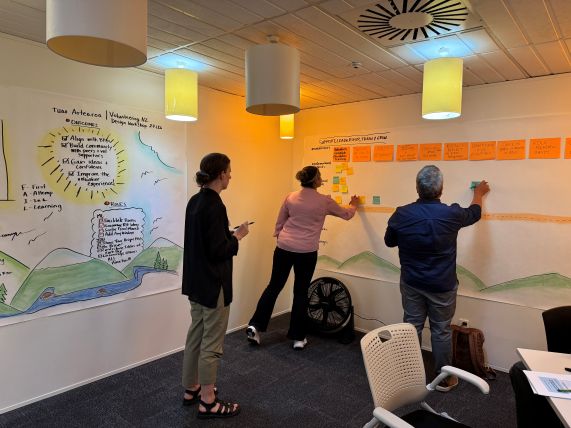
Have you ever wondered what Volunteer Journey Mapping looks like? About 20 volunteer managers from across the motu experienced this in a workshop with volunteer engagement expert Tobi Johnson at the end of January in Wellington.
This was no talk-fest but a hands-on workshop which saw us sharing and debating as we wrote ideas on large murals.
About volunteer journey mapping
Tobi says, “Mapping the volunteer journey from first touch to fond farewell is an excellent way to better understand changing volunteer motivations and needs as they move through your organisation from joiner, to learner, to doer to potential leader.”
The key steps were:
- Identify key touchpoints in the volunteer journey
- Analyse current volunteer needs & barriers
- Brainstorm possible upgrades and team tasks
- Identify potential challenges to implementing changes
- Prioritise and choose next steps
There were three murals, covering different phases of the volunteering lifecycle, in-line with Volunteering New Zealand’s Best Practice Guidelines:
- Recruit, engage, welcome and onboard
- Support, leadership, train and grow
- Feedback, recognition, impact and exit.
What we learnt
This process meant we had to think of the volunteer’s needs – both informational and emotional – at each step. We were putting ourselves in the volunteer’s shoes which informed what changes we would recommend.
As one post-event respondent said to the question, What did you enjoy most about the workshop? “Getting a comprehensive idea of the volunteer journey from start to finish - and how much work it takes! It was also lovely to share experiences with other groups. Really enjoyed being on our feet and interactive.”
A large amount of information was captured on the murals. Volunteering New Zealand is considering how we use this knowledge to inform our Guidelines work.
Useful resources
Tobi Johnson has shared some of her most useful resources:
Improve the volunteer experience with a journey map (podcast)
Volunteer management progress report
Volunteer return on investment calculator
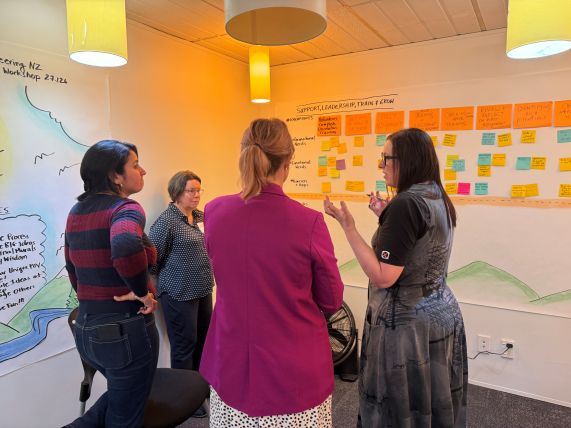
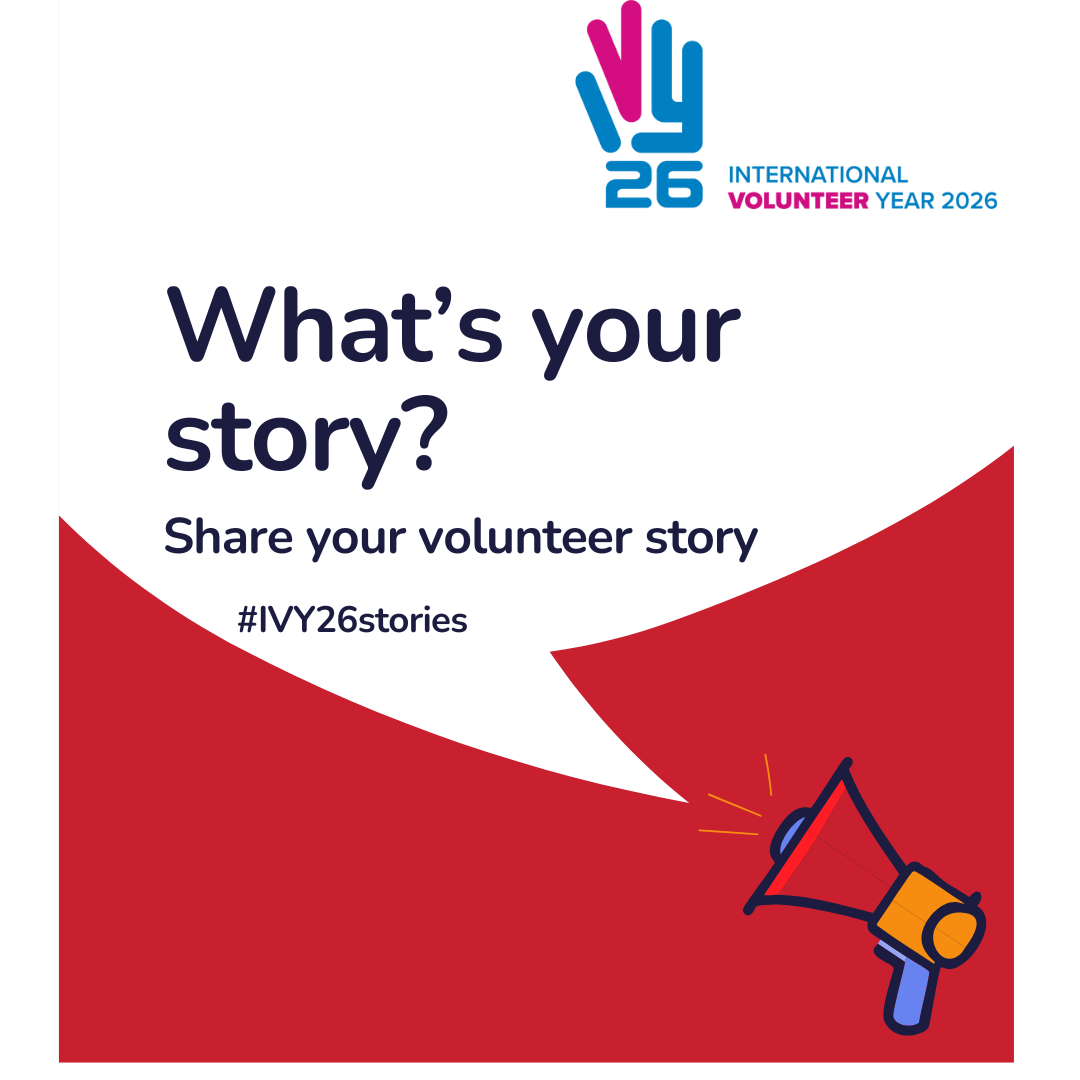
Community
News
Volunteers
What's your story? Making 2026 a year of volunteer storytelling
It’s International Volunteer Year, and one of the ways to mark that is to tell impactful volunteer stories. We encourage you to make 2026 a year of storytelling!

It’s International Volunteer Year, and one of the ways to mark that is to tell impactful volunteer stories. We encourage you to make 2026 a year of storytelling!
We are making it easy with:
· Social media tiles “What’s your story?” Get Canva template
· A tag: #IVY26stories
· A form template in Microsoft Forms (adjust as you like).
Note: requires users to sign in to Microsoft
Celebrate volunteering: Your stories show the power and diversity of volunteering across Aotearoa New Zealand.
Why participate: Help us showcase the impact of volunteers during International Volunteer Year. Boost support for your community organisation. Read our blog: Why Storytelling is a Powerful Way to Recognise and Celebrate Volunteers
How to get involved: Collect, share, and submit your best volunteer stories. Here's a great article on Collecting Volunteer Impact Stories.
You can send us your completed stories on this form
Volunteering New Zealand will share some of the stories each month. We’ll select some of the most impactful stories of volunteers to attend a special event later in the year.
2026 Sample questions/ template
Use these questions to build your own form:
1. What is your name
2. What is your email address?
3. Which organisation(s) do you volunteer for?
4. What inspired you to start volunteering?
5. Describe your volunteering journey
6. What do you gain from volunteering?
7. Are there any challenges or barriers to volunteering, and what could help overcome them?
8. Is there anything else you’d like to add to your volunteering story?
9. Please consent for your story to be used by us on our channels (Y/ N)
10. Upload photos or video
11. Social media handles (Optional)

Accessibility
Diversity
Inclusion
Mahi Tahi, Mahi Wātea resource strengthens the sector
A new resource for community groups, Mahi Tahi, Mahi Wātea, Engaging disabled people as volunteers, is now available.
By Michelle Kitney

Mahi Tahi, Mahi Wātea was developed to give community groups greater confidence to engage disabled people as volunteers.
It is an excellent resource, providing clear and straightforward, practical tools that help organisations reflect on curren tpractice, identify barriers, and take action, from role design and onboarding, to retention strategies. It is an excellent tool to start from or strengthen your inclusion journey.
The Guide and Framework are here: https://volunteeringauckland.org.nz/nonprofits/resources
Volunteering is constant and also evolving
Volunteering remains a constant and key enablerof community life and our collective wellbeing. Voluntary participation ratescontinue to increase, but how we want to give our time is changing.
We know time, cost-of-living pressures and digital barriers can make participation uneven.
At the same time, there is a clear opportunity: communities are asking for flexible, purpose-driven roles and for inclusive practice that welcomes everyone, including disabled people and our super diversecommunities.
Approximately a quarter of New Zealanders identify as disabled, so inclusion cannot be an ‘add‑on’. It must be built into how we design and deliver volunteering.
Inclusive volunteering built into practice
Inclusive volunteering doesn’t happen by chance; it is a programme design and leadership choice.
The Enabling Good Lives approach reinforces self‑determination,person‑centredsupports, ordinary life outcomes, and ‘mainstream first’ all of which can translatedirectly into how we recruit, onboard and support volunteers.
Practically, enabling volunteers meansremoving barriers: designing flexible roles, providing accessible materials and spaces, buddy systems and peer support,asking about access needs rather than medical details, and building feedbackloops so volunteers can shape their experience. But most importantly it meansbeing person and volunteer centric.
Accessibility and inclusion are at the heart the 2023 Volunteering NZ Best Practice Guidelines. Co-designed by the community sector and volunteers and provide a mandate and framework for all organisations to engage with volunteers from a people first approach.
Mahi Tahi, Mahi Wātea gives leaders the roadmap to make inclusion the norm.
I encourage you to download the guide, use it to review your volunteering engagement and programmes.
One or two small changes can make a difference. If we each make small, deliberate shifts, we will collectively strengthen volunteering accessibility and inclusion practice nationwide.
My congratulations to Cheryll Martin and her team at Volunteering Auckland, the contributors and partners who have brought Mahi Tahi, Mahi Wātea to life, and all those working every day to make volunteering in Aotearoa inclusive and strong.
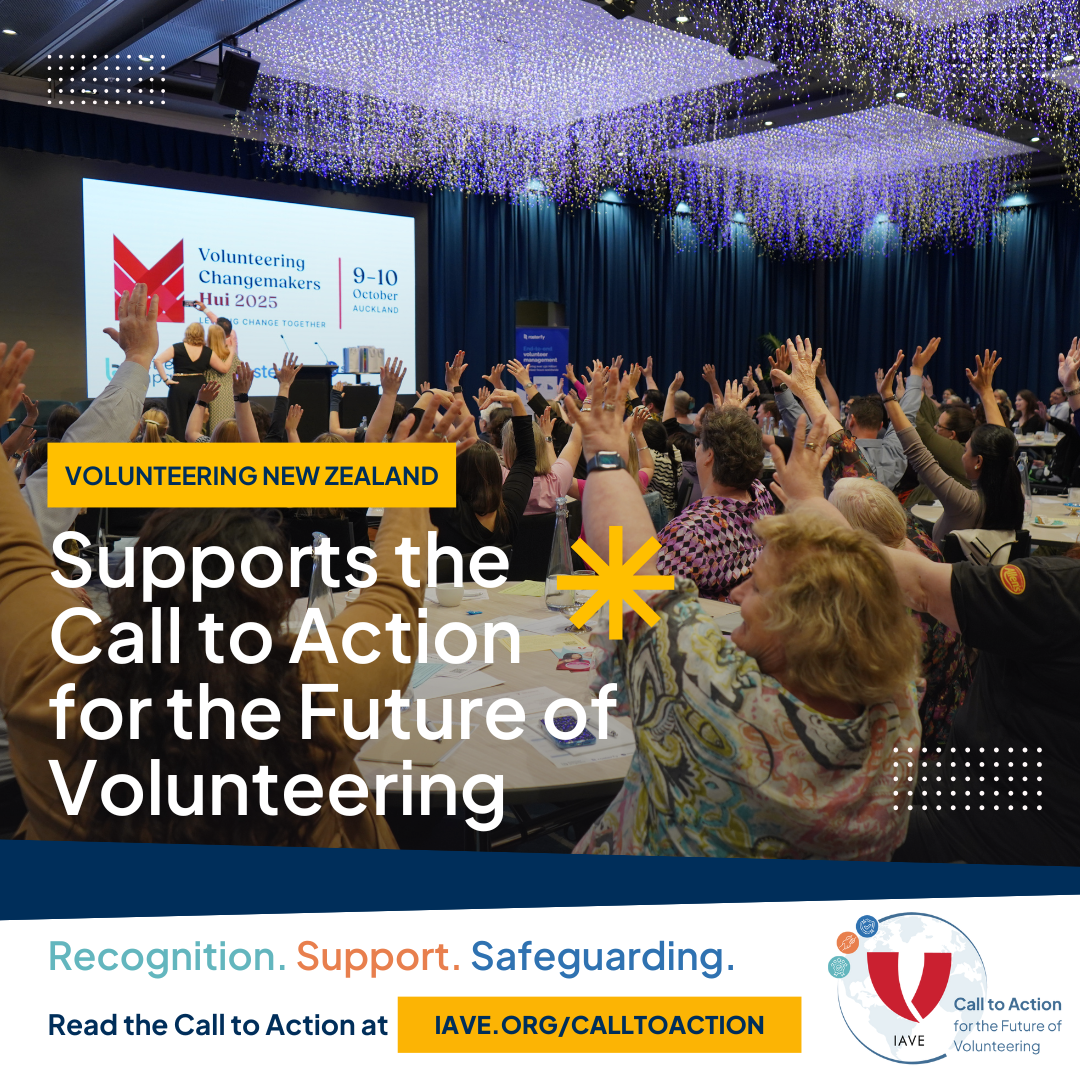
Latest News
Leadership
A Call To Action for the Future of Volunteering
Volunteering New Zealand supports the global Call to Action for the future of volunteering, issued on International Volunteer Day, 5 December. Volunteers and volunteer managers in New Zealand were among those who responded to the global consultation which led to the Call To Action.
Volunteering New Zealand supports the global Call to Action for the future of volunteering, issued on International Volunteer Day, 5 December.
Volunteers and volunteer managers in New Zealand were among those who responded to the global consultation which led to the Call To Action.
Volunteering New Zealand Chief Executive Michelle Kitney says: “New Zealand’s voluntary sector proudly participated in the co-design of the Global Call To Action which aims to improve the conditions for volunteering.”
25 years of volunteering action
The Universal Declaration on Volunteering in 2001 described volunteers as fundamental building blocks of community and civic life. Volunteers are our first responders during disasters, the hands and hearts behind food banks, the voices leading campaigns, and the neighbours lending a hand when it’s needed the most.
Twenty-five years later the world is getting ready to celebrate, elevate, recognise and support volunteers, with the United Nations General Assembly declaring 2026 as the International Year of Volunteers for Sustainable Development. This is a vehicle to enable all stakeholders to work together to promote the vital role that volunteers play in ensuring just and sustainable societies.
Two years of preparations globally to mark the International Volunteer Year 2026 (IVY 2026) brought together the voices of close to 14,000 people from 164 countries to respond to the question: to better harness the power of volunteering towards sustainable development, what needs to change – and who has the power to change it?
Launched on December 5 2025, the Global Call To Action
The challenge is clear: for volunteering to realise its full potential, we need to collectively identify the key actions needed, across diverse contexts and stakeholder groups, to unlock greater investment and create enabling environments for volunteering to thrive.
This Call to Action represents the collective voices of volunteer-involving organisations, national leadership for volunteering organisations, the private sector, funders and governments gathered in 2025 through surveys, local dialogues, and global discussions. From their perspectives, this call sets out the key actions needed for volunteering to realise its full potential.
In response to the Global Challenge Paper, Volunteering New Zealand convened with regional volunteer centres, member organisations and the wider sector, collated shared feedback and insights and synthesised and submitted this into the Global Call To Action process.
“We elevated sector voices directly by sharing key quotes and feedback. This fed into the insights paper and into the final Call To Action,” Michelle Kitney says.
Three action areas
This Call to Action outlines three action areas: Recognition, Support and Safeguarding. Each has an underlying principle and key actions addressed to specific stakeholders. Across all areas, volunteers themselves play a central role as advocates and partners in driving this agenda forward.
1 Call to Action: Recognition
Volunteers should be systematically recognised, valued, and celebrated, shifting from symbolic appreciation to systemic recognition through policies, funding, and integration of volunteering into relevant strategies.
2 Call to Action: Support
Volunteering is not always cost free, nor does it always happen automatically. It requires an enabling environment to support participation and maximize its impact, while adapting to evolving social and ecological conditions.
3 Call to Action: Safeguarding
Together, we can build a future where volunteering is recognized, supported, and protected everywhere, for everyone.
It is now more urgent than ever to create safe environments where volunteering can thrive. The safety, rights, wellbeing and dignity of volunteers, and the people with whom they engage with, across all contexts, are paramount to ensure they contribute without fear of harm or exploitation.
How to get involved
Get involved in recognising, supporting and protecting volunteers and volunteering. What you can do now:
· Share the Call to Action statement within your organisation and your networks. Use your social media channels to show your support for the Call to Action using the hashtag #futureofvolunteering
· Say ‘Yes’ to being part of the Call to Action movement and get involved by registering your details at iave.org/calltoaction and forum-ids.org/ international-volunteer-year-2026.
· Use IVY 2026 as the year to take action on one or more of the commitments.
Learn more
Learn more about the movement by reading the Call to Action for the Future of Volunteering Challenge Paper and Insights Paper.
Together, we can build a future where volunteering is recognised, supported, and protected everywhere, for everyone.
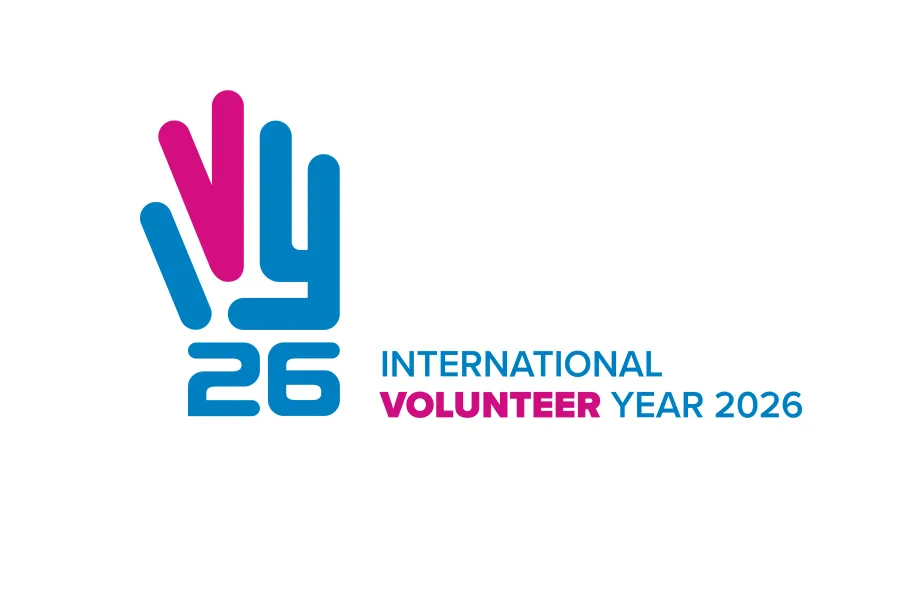
Leadership
International
Latest News
International Volunteer Year 2026
2026 will be International Volunteer Year (IVY26) – as declared by the UN General Assembly. Volunteering New Zealand and the Volunteer Centres throughout the motu have begun planning for this significant event. The previous International Year of the Volunteer was in 2001, 25 years ago, when Volunteering New Zealand was created.
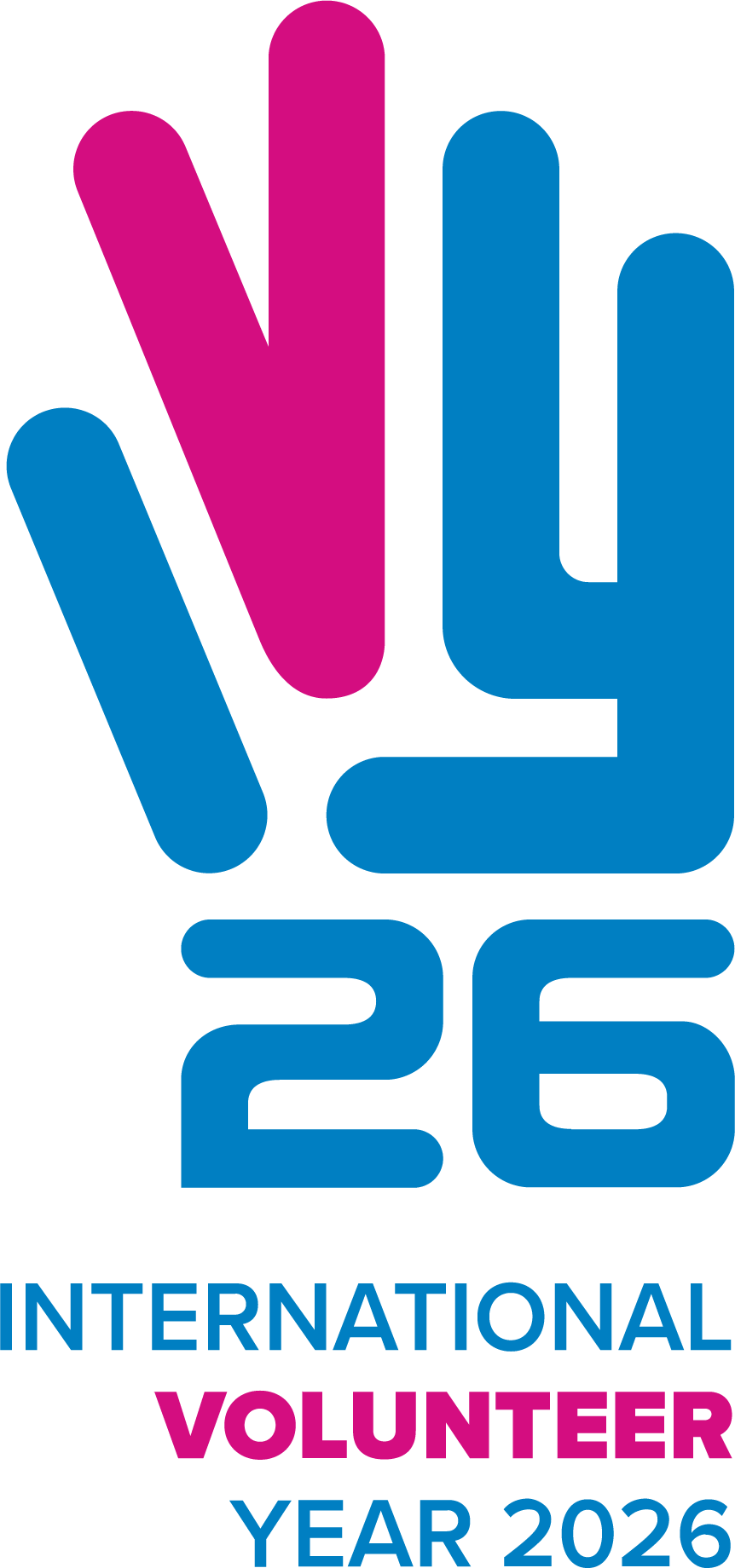
2026 will be International Volunteer Year (IVY26) – as declared by the UN General Assembly. Volunteering New Zealand and the Volunteer Centres throughout the motu have begun planning for this significant event.
The previous International Year of the Volunteer was in 2001, 25 years ago, when Volunteering New Zealand was created.
Significant changes ushered in
The International Year of Volunteers 2001 was a catalyst for enhanced recognition, policy change, capacity building, and research into volunteering, with a lasting impact on government and civil society practices worldwide. See the IVYGlobal Evaluation Report 2002.
In New Zealand, there were a range of initiatives to promote volunteering. Government provided funding support for Volunteering New Zealand and Volunteer Centres; and a policy project looked at barriers to volunteering in government legislation and policy. See the Report of the Ministerial Reference Group for International Year of Volunteers 2001.
Long-lasting effect
Global volunteer involvement after IYV 2001 was marked by greater recognition and institutional support, but formal participation rates fell in many regions even as volunteer hours and impact increased. Also, policy environments broadened to support volunteerism’s evolving role.
In New Zealand, there has been promotion and recognition of volunteering through National Volunteer Week and other campaigns; continued government funding support for Volunteering New Zealand Volunteer Centres; research, through Statistics New Zealand, on the uptake of volunteering.
Bucking the international trend of declining volunteering rates, volunteering in New Zealand has increased. In 1996, 41% of adults undertook unpaid work, by 2023 that was 53%.
Plans for IVY 2026
IVY 2026 is an opportunity to emphasise the power of volunteering, encourage greater investment in volunteering, and secure commitments from governments and others to support volunteering.
IAVE has been gathering insights from around the world into Call to Action on the Future of Volunteering. Find out more from IAVE.
Volunteering New Zealand also has plans underway to leverage IVY26, including:
· A decade of State of Volunteering reports analysis
· Reflective piece on the decade’s learnings
· Policy recommendations for the Government
· Thought-leader consultation (12 contributors)
At the Volunteering Changemakers Hui on 10 October, we held an interactive session for delegates to:
· consider the opportunities and challenges for the future of volunteering, and
We welcome your feedback on these notes.
See our International Volunteer Year campaign page and resources.

Volunteers
VNZ Notice
Could you be a mentor for our 2026 Mentoring Programme?
We’re looking for super star mentors to join our 2026 national mentoring programme. Interested? Read on…
We’re looking for super star mentors to join our 2026 national mentoring programme. Interested? Read on…
The new programme will run from April to September 2026. Mentors meet online with their mentee once a month, for one hour, for six months. If you’ve not been a mentor with us before, you will meet with the Programme Coordinator to discuss your skills and suitability before matching you with a mentee.
Mentors gain as much from the programme as mentees.
Benefits for participants include:
- A great career development opportunity
- Use your leadership skills and knowledge in a national, respected programme
- A rewarding, fulfilling volunteer experience improve networks and connections with others in the community sector across the country
- Opportunities to meet and connect with other participants throughout the programme, sharing learnings, challenges and ideas
- Ongoing support from the Programme Coordinator
- Plus, it’s super rewarding and fun!
Previous mentors have said:
“It is so rewarding helping the mentee reflect on their topic(s), setting goals and to see them reach their goals one by one. Very humbling actually!”
”I’m really enjoying these sessions too - gets me thinking and remembering what’s important in our work and commitment to volunteering! And I am finding out quite a bit about our communities that I don’t always get to hear about or be in contact with.”
Find out more about the 2026 programme
Survey results from 2025 programme

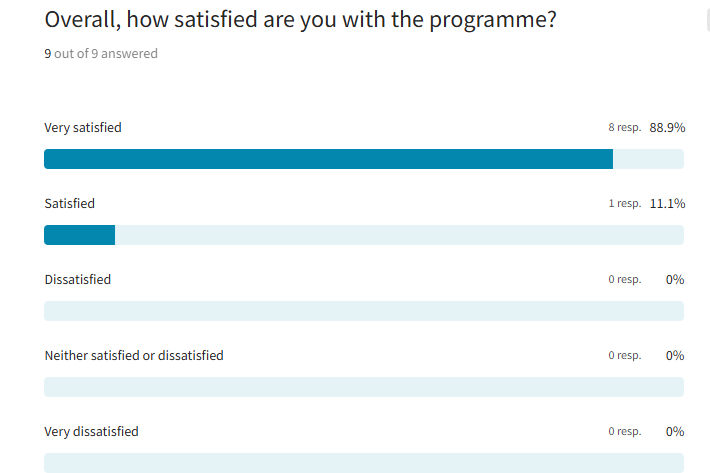
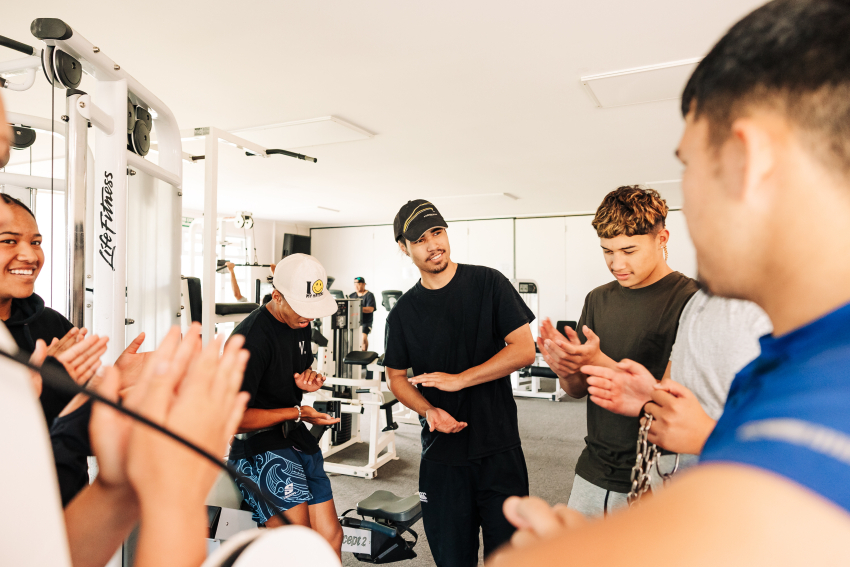
Leadership
Social justice
Active Citizenship: Restoring the Human Thread of Society
Across Aotearoa and the world, societies are struggling with division, distrust, and disconnection. Research confirms that this erosion of social cohesion has weakened one of our most vital civic forces — Active Citizenship.
This article is drawn from a paper by Ron Rowe, which he presented at the Volunteering New Zealand AGM on 4 November 2025.
Across Aotearoa and the world, societies are struggling with division, distrust, and disconnection. Research confirms that this erosion of social cohesion has weakened one of our most vital civic forces — Active Citizenship.
Active Citizenship is more than belonging to a community. It means taking responsibility, engaging with others, and contributing to the common good. It is built on empathy, trust, and shared purpose — qualities that sustain democracy and social wellbeing.
Volunteering: The Living Face of Active Citizenship
Volunteering is where Active Citizenship comes alive. Volunteers bring time, skills, and compassion to their communities, weaving connections — whiriate tangata — that strengthen the social fabric. They model what it means to act with empathy and responsibility, creating practical hope in unsettled times.
The relationship between volunteering and Active Citizenship is symbiotic: volunteering expresses Active Citizenship, and Active Citizenship gives volunteering its civic meaning. Together they build social capital, nurture belonging, and help societies heal.
The High-Tech, Low-Touch Challenge
Technological change has transformed how we communicate — often at the expense of human connection. As futurist John Naisbitt warned, a “high-tech” world requires “high touch” to keep us grounded in empathy and relationship. Social media can empower communities, but it also amplifies misinformation, anger, and isolation. Rebuilding trust requires rediscovering the human touch in how we engage, listen, and act.
Restoring Trust and Connection
The path forward lies in renewing our civic habits — responsibility, respect, and participation. Recent wellbeing research in New Zealand shows that community connection and empowerment have greater impact on health and happiness than healthcare alone. Investing in Active Citizenship is therefore an investment in national wellbeing.
As European social policy leader Krzysztof Pater observed, “The future will not be built by decision-makers or politicians, but by active citizens and volunteers — people who devote their free time to the benefit of society.”
Moving from Hope to Action
Rebuilding social trust and connection will take time, but the light is already shining through our volunteers — the emblematic citizens who lead through service. Their work reminds us that every act of contribution, however small, strengthens our collective resilience.
As the Māori whakatauki says:
Te ohonga ake i te moemoea, ko te puawaitanga o ngā whakairo – Dreams become reality when we take action.
To restore unsettled societies, we must do just that: act. Active Citizenship is not an ideal to discuss — it is a practice to live.

We are proud to boldly join with leaders of volunteers across the motu, and the globe. There is no volunteering without leadership; and we provide resources, tools and support to those who engage and lead volunteers.

International Volunteer Managers Day (IVMDay) is held annually on 5 November. This year’s theme recognises that for change to occur, we often need to step outside our own comfort zone – and BE BOLD.
A huge thank you to our volunteer leaders who make an impact in our communities across Aotearoa!
To mark IVMDay, we’ve selected our top five resources, tools and research to support managers of volunteers:
An essential tool for volunteer managers to improve volunteer engagement, covering seven practice areas of the volunteer lifecycle.
Get guides and templates to help manage volunteers. Find what you need without scouring the internet!
3. Regional training and events
A listing of upcoming training and events for volunteer managers from across the motu. Many are online and free, giving you access to learning wherever you are.
4. Volunteers and the law
Understand your legal responsibilities and the volunteer laws in New Zealand. These include employment, health and safety, volunteer rights and volunteer expenses.
Also see the section on vetting volunteers: why it's important and tips for doing it.
5. Research about volunteering in New Zealand
Our State of Volunteering reports track what volunteers and organisations say about volunteering. See also key statistics from StatsNZ and other sources.
Bonus resource: Volunteer Managers & Leaders report 2024
Find out what volunteer managers said about what support and training they’re getting and what they need to be effective.
Get resources to celebrate IVM Day 2025.
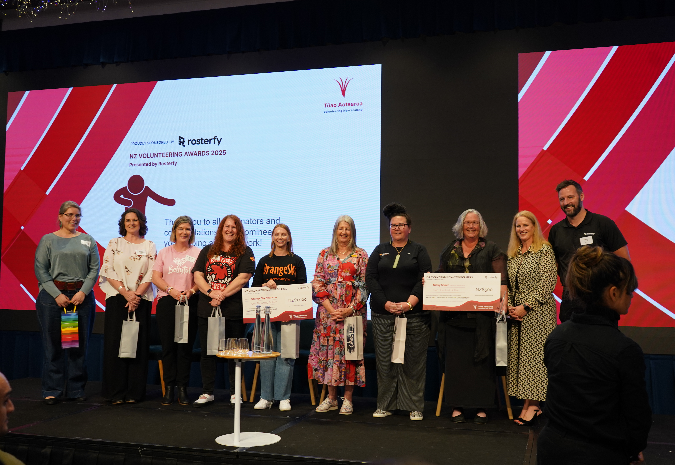
Awards
Leadership
VNZ Notice
Winners of the NZ Volunteering Awards 2025
A charity that cares for people experiencing homelessness or hardship, and two volunteer leaders working for the environment and community are winners of the inaugural NZ Volunteering Awards, presented by Rosterfy.
A charity that cares for people experiencing homelessness or hardship, and two volunteer leaders working for the environment and community are winners of the inaugural NZ Volunteering Awards, presented by Rosterfy, global leaders in volunteer engagement technology.
“Volunteers play a vital role in shaping strong, resilient communities, and behind every great volunteer initiative is a well-designed, inclusive, and inspiring engagement programme. These awards acknowledge the people and programmes that are leading the way,” says Michelle Kitney, Chief Executive of Volunteering New Zealand.
The winners, presented at the Volunteering Changemakers Hui on Friday, 10 October are:
Volunteer Programme of the Year:
· Bellyful NZ (runner-up).
Emerging Leader in Volunteer Engagement: joint winners:
· Nicky Shave, Te Honongaa Iwi - Restoring Rosedale Park, Auckland
· Gary Mitchell, PredatorFree Grenada Village, Wellington
“These awards go beyond celebrating the act of volunteering. They focus on how volunteers are supported, recognised, and developed – key components that reflect the quality and sustainability of volunteer involvement in Aotearoa,” Michelle says.
"It's an honour to celebrate these outstanding leaders and programmes who are raising the bar in volunteer engagement in New Zealand," said Shannan Gove, Co-Founder of Rosterfy. "Today’s volunteer management needs to be inclusive, data-driven, and adaptable to volunteers’ needs, and these winners embody exactly that."
Thanks to the generosity of Rosterfy, the Volunteer Programme winner received $1000,while the Emerging Leaders received $500 each for professional development.
About the winners
Orange Sky
Every week across Aotearoa, hundreds of Orange Sky volunteers gather around a set of washing machines, sometimes a shower, and always six orange chairs. Together they provide not only free access to laundry and shower services, but also create safe spaces for kōrero (conversation), connection, and care for people experiencing homelessness or hardship. In the 2023-24 year, volunteers created:3,000 loads of laundry, 2,645 showers, and 3,364 hours of conversation, delivered by 567 volunteers. Orange Sky’s volunteer programme showcases the best of Aotearoa volunteerism: purposeful, practical, and deeply impactful.
Bellyful NZ
Filling Bellies, Filling Minds was developed to strengthen the impact of Bellyful’s core service: delivering free meals to families with babies and young children who are without a support network.
Last year our 700+ volunteers delivered more than 34,000 meals to nearly 7,000 families facing challenges like newborn exhaustion, illness, isolation, bereavement or baby loss. It’s more than a meal, it’s connection, care and the knowledge that someone cares. Bellyful’s impact depends on volunteers and its volunteer management programme – Filling Bellies, Filling Minds – is how we sustain, support and celebrate them.
Nicky Shave, Te Hononga a Iwi - Restoring Rosedale Park
Starting with no ecological knowledge or experience, Nicky has created an innovative, groundbreaking project delivering amazing outcomes for the community and the planet. Outcomes include: working with 9 schools and3 ECE's including providing opportunities for less abled students; over 50Youth leader positions; and active engagement from 3 retirement villages. The ability of every person who comes on site to make a difference is recognised and valued. Nicky is a full-time volunteer and regularly gives over 50 hours a week to this project.
Gary Mitchell, Predator Free Grenada Village and more.
Gary Mitchell is an exceptional emerging leader in volunteer engagement whose hands-on leadership, structured systems, and people-first approach have transformed the environmental and community volunteering landscape across Wellington, Aotearoa, and even overseas. Gary has engaged and empowered over 400 active volunteers. These individuals work across predator control, marine protection, stream restoration, urban beautification, community clean-ups, and neighbourhood safety all underpinned by Gary’s leadership, strategy, and heart. Gary has personally contributed over 20,000 volunteer hours and he has united communities around shared environmental purpose and action.
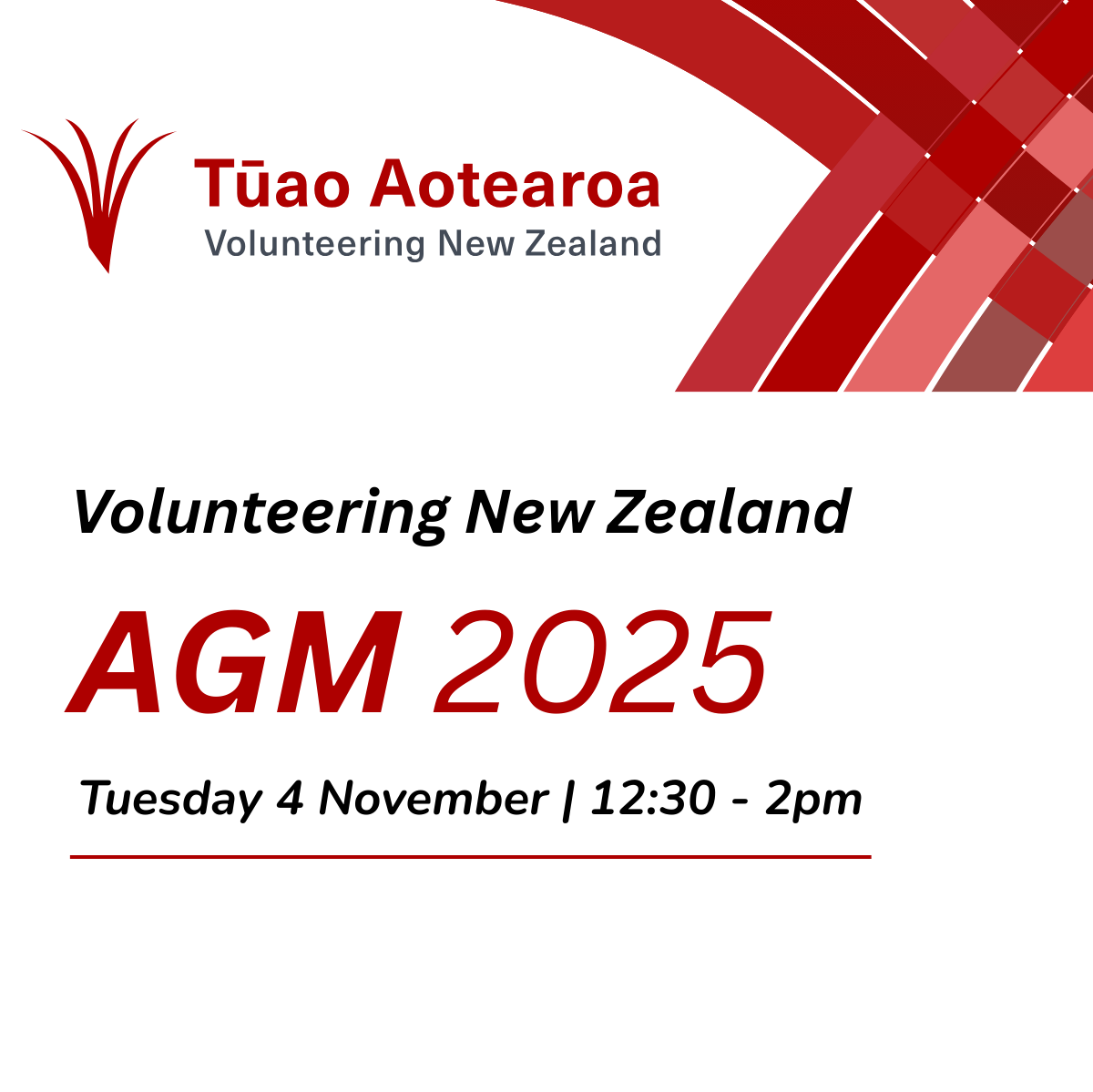
VNZ Notice
VNZ Events
AGM invitation and Board nominations
Join us for our Annual General Meeting on Tuesday 4th November from 12.30pm. We also invite nominations for our Board for representatives for our Māori and Pasifika people seats.
Members of Volunteering New Zealand, are invited to attend and participate in Volunteering New Zealand's 2025 Annual General Meeting.
Date: Tuesday 4 November 2025
Time: 12.30 - 2.00 pm
Venue: Online via zoom.
Agenda
Please register by 28 October 2025.
This event will be led by Volunteering New Zealand board members and include presentations and reflections on the upcoming International Year of the Volunteer 2026 and our 25th year.
Call for Board nominations
The Volunteering New Zealand Board has opened the nomination process for two new members to fill our:
- Pasifika peoples board member role, and
- Māori board member role.
We warmly welcome nominations from across the motu, and would ideally be looking for candidates with community governance experience. For these important roles, nominees can be nominated by their community or by a VNZ member organisation. If you are attending our Volunteering Changemakers Hui, please talk to us about what the role entails.
Nominations can be made by Volunteering New Zealand Member organisations.
Should you wish to nominate yourself or someone else, nominees must submit:
- Volunteering New Zealand Board Nomination Form, and
- A one-page summary of the skills and experience that you would bring to the Board, and any other relevant information.
Nominations close at 12:00 pm, Monday 13 October 2025.
Should you wish to nominate yourself or someone else please submit your scanned board nomination form and one-page summary of your skills and experience by email to office@volunteeringnz.org.nz before 12:00 pm, Monday 13 October 2025.
If an election is required, Volunteering New Zealand member organisations will be invited to vote for their preferred nominees from 14 October. Results will be announced at our Annual General Meeting on Tuesday 4 November 2025.
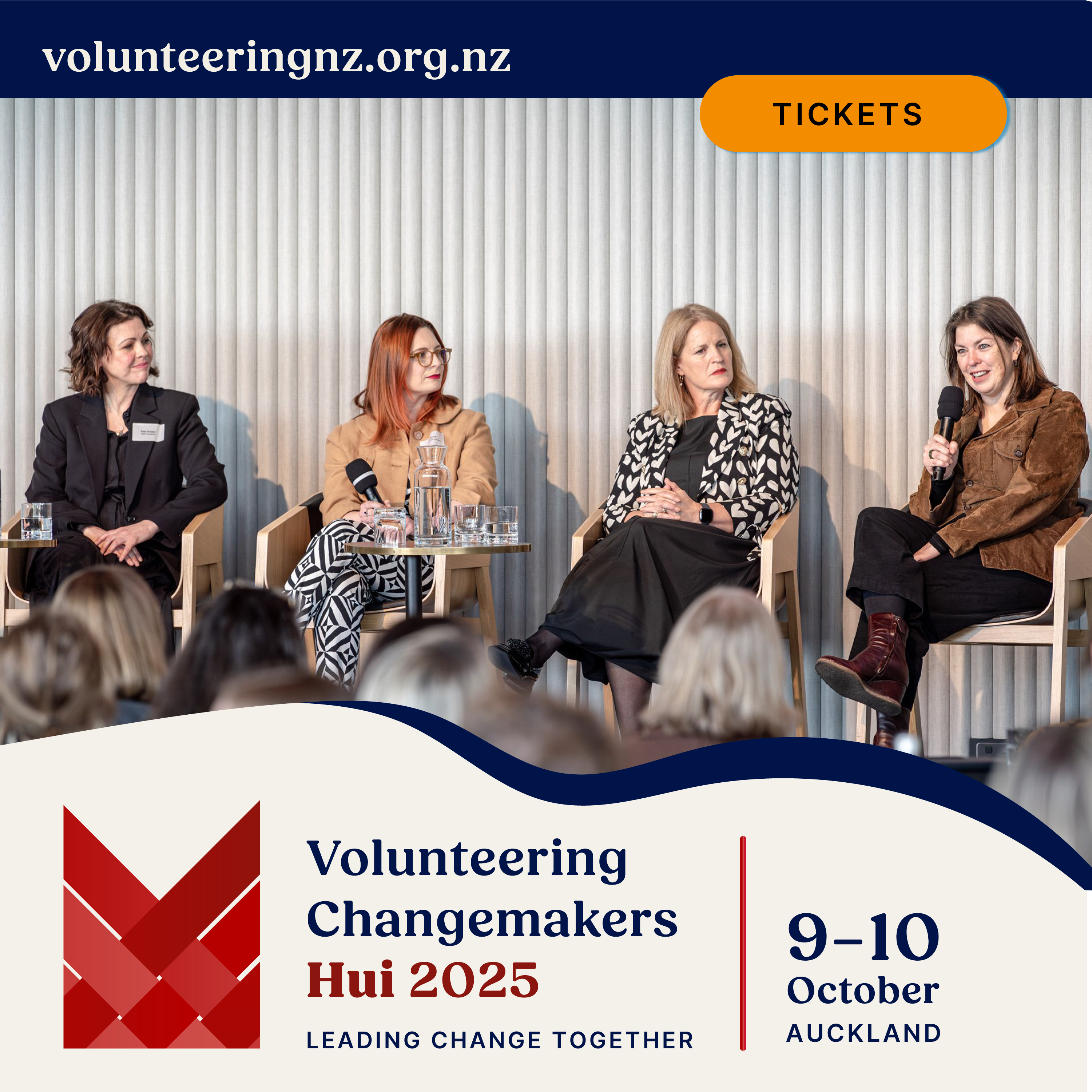
Latest News
Leadership
VNZ Events
Join the Changemakers: The Volunteering Changemakers Hui 2025
The time is now! Volunteer managers, leaders, and enablers of volunteering—our annual Volunteering Changemakers Hui is the event you don’t want to miss. In a world where the landscape of volunteering is evolving rapidly, this is your opportunity to come together with others in the sector, share insights, and lead the charge toward the future of volunteering.
The time is now! Volunteer managers, leaders, and enablers of volunteering—our annual Volunteering Changemakers Hui is the event you don’t want to miss. In a world where the landscape of volunteering is evolving rapidly, this is your opportunity to come together with others in the sector, share insights, and lead the charge toward the future of volunteering.
Why Attend the Volunteering Changemakers Hui?
Whether you're an experienced volunteer manager or someone just starting out, the Hui offers a space to learn, connect, and inspire. We’ve designed a jam-packed agenda to help you navigate the current shifts in the sector and equip you with the tools you need to drive meaningful change.
This year’s conference is packed with:
- Great Speakers: Thought leaders from diverse fields who will share their expertise on a range of topics impacting volunteering today.
- Facilitated Discussions: Listen to thought-provoking conversations with leaders and shakers!
- Workshops & Networking: Build your network, gain practical skills, and walk away with actionable strategies.
Featured Sessions
We’ve lined up some must-attend sessions that will tackle the challenges volunteer managers face and provide strategies to overcome them. Here are a few highlights:
- Leading Change Together
Collaborate with others to drive change in your organisation and community. - Best Practice in Action
Learn what works and what doesn’t from others who have already implemented successful strategies. - Designing a Best Practice Volunteer Programme
Building a volunteer programme that truly supports your mission and engages your volunteers. - Navigating Conflict in Volunteer Management
Practical strategies for dealing with disagreements or challenges that arise with volunteers. - Capacity: Personal, Professional, and Working with Volunteers
Learn to manage your own capacity while enhancing the experience for your volunteers.
Meet Our Speakers
We’re excited to bring you a diverse lineup of speakers who will challenge and inspire you to think differently about volunteering. Here’s a glimpse:
- Professor Paul Spoonley: A leading social scientist, Paul will explore the social and cultural factors that impact social service delivery and volunteering. Get ready for a deep dive into how societal changes are shaping volunteer work today.
- Dr Andrew Lensen: As an expert on Artificial Intelligence, Dr Lensen will explore the opportunities and risks AI presents to the volunteering sector. Don’t miss this forward-thinking session that will open your eyes to the potential of technology in volunteer management.
- Victoria Davy: As head of volunteering at Blind Low Vision NZ, Victoria will lead a session on how to manage your personal capacity and avoid burnout. She’ll also discuss how to maximise volunteer capacity, such as engaging specialist volunteers and rescoping roles.
Don’t Miss Our Interactive Future-Focused Session
One of the highlights of the Hui will be an interactive session focusing on the future of volunteering. We’ll be looking ahead to the International Year of the Volunteer 2026 and discussing how we can shape the future of volunteerism in Aotearoa and beyond.
Optional Masterclass & Networking Event
We’re offering an optional Masterclass on 9 October, followed by a networking event. This is a chance for those looking to dig even deeper into specific areas of volunteer management and build meaningful connections with others in the field.
Secure Your Spot Now
This year’s Volunteering Changemakers Hui promises to be an event full of inspiration, connection, and action. Don’t miss your chance to be part of this transformative gathering of volunteer leaders!
Visit this Hui webpage to read more about the event and secure your spot today. We can’t wait to see you there!
%20sm.png)
Campaigns
Recognition
Shout Out Sundays: Because Recognition Should Be Year-Round
After the incredible success of The Big Shout-Out this June, we’re keeping the momentum going with Shout Out Sundays, a weekly celebration of volunteers across Aotearoa.
%20sm.png)
At Volunteering New Zealand, we believe volunteer recognition shouldn’t be a one-off moment. Volunteers show up every week, so our appreciation should too.
After the incredible success of The Big Shout-Out this June, we’re keeping the momentum going with Shout Out Sundays, a weekly celebration of volunteers across Aotearoa. Each Sunday, we’ll share stories on social media that highlight the incredible mahi happening in our communities.
Why Keep It Going
Volunteer impact doesn’t follow a calendar. It’s ongoing, generous, and often unseen. That’s why recognition needs to be regular. Not just during National Volunteer Week, and not just when a campaign is trending.
By celebrating volunteers every week, we’re building a culture that values people’s time and effort all year round. It’s about making appreciation part of everyday life, not just a special occasion.
How to Get Involved
We’d love for organisations, community groups, and individuals to join in. Here’s how:
· Share your shout-outs on social media
· Use #ShoutOutSundaysto mark the weekly celebration
· Add #TheBigShoutOut to connect back to the wider campaign
· Tag Volunteering New Zealand so we can help spread the love
Using both hashtags helps us keep the energy of the original campaign alive while growing a new tradition of weekly recognition.
Let’s Keep the Shout-Outs Coming
Every shout-out sends a message. It tells someone their contribution matters. It lifts spirits, sparks connection, and encourages others to step forward.
With Shout Out Sundays, we’re making sure those messages keep coming. Week after week. Story after story.
Let’s make gratitude a habit. Let’s celebrate volunteers all year round.
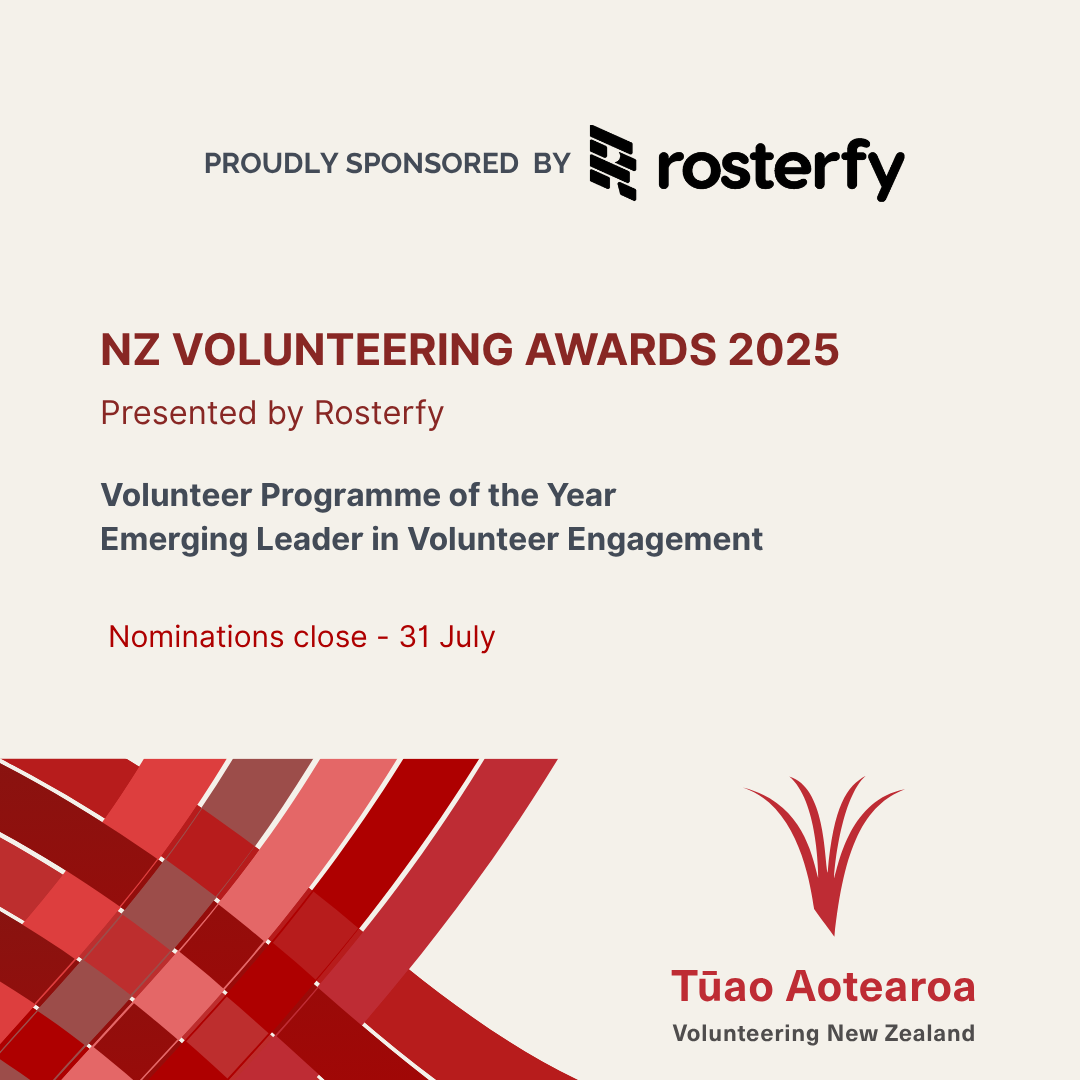
The NZ Volunteering Awards 2025, presented in partnership with Rosterfy, are new national awards to recognise and celebrate outstanding leadership and impact in volunteer engagement. Nominations close 17 August 2025.
The NZ Volunteering Awards 2025, presented in partnership with Rosterfy, are new national awards to recognise and celebrate outstanding leadership and impact in volunteer engagement. Nominations close 17 August 2025.
Volunteers play a vital role in shaping strong, resilient communities—and behind every great volunteer initiative is a well-designed, inclusive, and inspiring engagement programme. These awards acknowledge the people and programmes that are leading the way.
Awards Categories
The NZ Volunteering Awards honour both individuals and teams who are elevating the volunteer experience through innovation, structure, and best practice.
These awards go beyond celebrating the act of volunteering. They focus on how volunteers are supported, recognised, and developed—key components that reflect the quality and sustainability of volunteer involvement in Aotearoa.
There are two categories for these inaugural awards:
· Volunteer Programme of the Year
· Emerging Leader in Volunteer Engagement
Unsure where to start with a nomination? Here are some quick tips on writing a stellar nomination by Marian Casey[1]
1. Focus on the actions and impact of the last 12 months
Give details on what you have achieved recently – what did you do, and what impact did it have for volunteers and the community.
2. Ask your manager or colleagues for a quote
A quote can help with not only supporting a nomination, it helps build the picture as to the impact of the project or person.
3. Use the STAR method
Situation, Task, Action, and Result. This helps tell the story of the issue, what you did and the outcome.
Ready to Nominate?
If you lead a programme or are an emerging leader making a difference in the volunteer sector, we encourage you to submit a nomination. We’d love to hear from a wide variety of volunteer-involving organisations and leaders.
Start Your Nomination
[1] Marian Casey is a volunteer thought leader with over 30 years of service experience, combining a passion for community, leadership in volunteer engagement, and a career spanning education, healthcare, and partnerships.

Awards
VNZ Events
Inaugural NZ Volunteering Awards announced presented by Rosterfy
For the first time, Volunteering New Zealand is proud to announce the NZ Volunteering Awards 2025 presented by Rosterfy. These awards will be a national celebration of outstanding impact and leadership in volunteer engagement.
.png)
For the first time, Volunteering New Zealand is proud to announce the NZ Volunteering Awards 2025 presented by Rosterfy.
These awards will be a national celebration of outstanding impact and leadership in volunteer engagement.
Award Categories
- Volunteer Programme of the Year
- Emerging Leader of Volunteer Engagement
Enter now and be in to win monetary prizes, and recognition at the Volunteering Leadership Hui October 2025.
Michelle Kitney, Chief Executive of Volunteering New Zealand says, “These prestigious awards recognise volunteer leadership at its best, and will help develop volunteer management as a profession. We are excited to be offering these awards for the first time and will build on them in future years.”
Rosterfy, as presenting sponsor, is proud to support this initiative that aligns closely with its mission “To connect communities to events and causes they are passionate about”.
“Supporting the NZ Volunteering Awards is a natural extension of our commitment to recognising and empowering those who lead and support volunteering across Aotearoa,” said the Rosterfy team.
Bennett Merriman, CEO and Co-Founder of Rosterfy, adds: “At Rosterfy, we believe that strong volunteer leadership is the backbone of thriving communities. We're honoured to sponsor these awards and celebrate the individuals and organisations shaping the future of volunteering in New Zealand.”
To find out the criteria and nominate, visit: https://www.rosterfy.com/nz-volunteering-awards-2025-presented-by-rosterfy
Entries are free.
Nominations close 17 August 2025.
